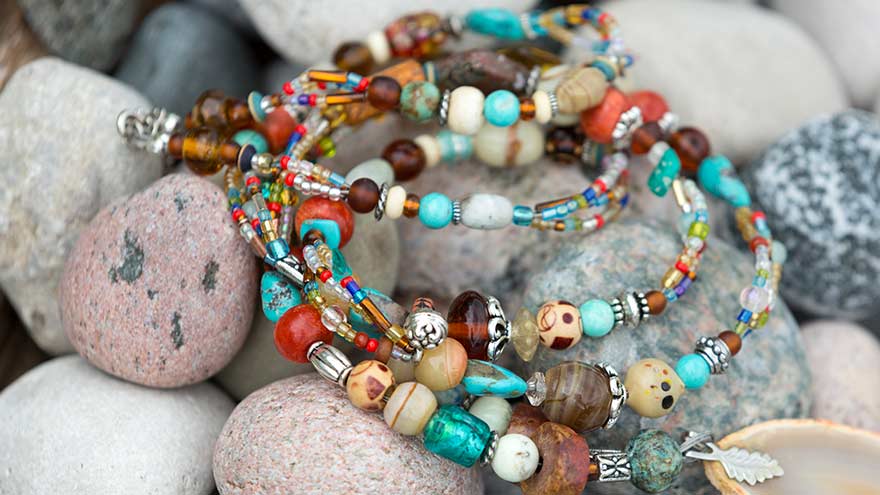Search
-
Panda Cares Center of Hope at Renown Children's Hospital
When you have an ill child in the hospital, it is a stressful event. And Panda Express is helping local families support children who need special care. Their generous donation provides much-needed equipment, programs, and resources via the new Panda Cares Center of Hope, Renown Children’s Specialty Center. Their partnership directly benefits patients and their families! The ‘Panda Cares Center of Hope, Renown’s Children’s Specialty Center’ In fact, this new center provides care to not only children, but also comprehensive support to the entire family. Similarly, it creates an environment that reduces stress, promotes healing, and provides a superior patient and family experience. This facility upholds Panda Express’ mission, vision, and values and its four pillars: to directly help fund the emotional, mental, physical, and spiritual needs of children. This center, the first-ever in northern Nevada, will provide care for children who have chronic conditions. In particular, it offers ongoing treatment, health management, and specialty medical services, including: Nephrology Endocrinology Neurology Pulmonary Infectious Diseases Medical Genetics Adolescent Medicine How You Can Help! When you order from Panda Express, you can opt to round up your change, which will help support programs and services, such as the Center of Hope for Renown Children’s Hospital. Order Online A Partnership for Health & Education of Underserved Youth This partnership allows Renown Children’s Hospital to continue to strengthen regional services and increase Panda’s visibility within our growing community. Last year, 21,930 sick children received care from Renown Children’s Hospital. To date, Panda Express has raised $449,200 in financial support to assist us in providing health and education to every child, regardless of illness, injury, insurance, or ability to pay. Panda Express funds have already supported: Giraffe omni beds for the NICU Ultrasound machine for the Children’s ER Panda warmers and a hand held Accuvein machine Child Life Program to support sick patients and families Meeting room in the Children’s Specialty Center In kind donations, volunteer time and support of local events such as the University of Nevada Reno, Wolf Pack Dance Marathon
Read More About Panda Cares Center of Hope at Renown Children's Hospital
-
Human Trafficking Happens in Nevada
Each month an average of 5,016 individuals are sold for sex in Nevada. Frequently the victims of human trafficking are women and children. That’s why Renown, along with other community groups, is leading efforts to help victims. Specifically identifying them and connecting them to the support services they need. The purpose is to restore their mental and physical health give them hope for a better life. Supporting Our Community Our goal is to identify victims, providing compassionate care for the complex needs of this vulnerable population. By building partnerships with key agencies and advocates in the community and creating policies around human trafficking, we also aim to transition victims safely to community-based services. Along with training, Renown healthcare workers are armed with pocket guides reminding them how to support human trafficking victims. To provide awareness about this crisis, Renown has implemented four key initiatives: Educate health care providers Execute policies and procedures to identify victims Build partnerships with local law enforcement, emergency services and local advocates Connect victims to crucial community resources Human Trafficking: How You Can Help Awaken acts to transform our community with the ultimate goal of ending commercial sexual exploitation. In 2020, Awaken worked with 173 women and children. Awaken’s programs include a drop-in center, an 18 to 24 month transitional housing program, an educational center for trafficked youth, rental assistance, recovery groups, therapy, tutoring, case management, mentorship, safety, and community. National Human Trafficking Hotline: 1-888-373-7888 Local Emergency: 911 Did You Know?
-
Lyme Disease: 3 Things You Should Know
Approximately 476,000 Americans are diagnosed and treated for Lyme disease every year. Lyme disease is an infection that is transmitted to humans through the bite of infected black-legged or “deer” tick. It’s the most common and fastest-growing vector-borne disease in the United States. This bacterial infection, if left untreated, can cause serious pain, fatigue and other crippling symptoms. Keeping an eye out for early signs of Lyme disease, implementing prevention techniques and understanding testing and treatment options can go a long way in maintaining your health. We consulted with Peter O’Reilly, PA-C at Renown Medical Group – South Carson to learn more. 1. Recognizing the Signs of Lyme Disease Lyme disease is extremely easy to misdiagnose, given that most of its early signs and symptoms mimic those of other conditions, such as COVID-19. Common Lyme Disease symptoms include: Fever Chills Joint or muscle pain Swollen glands Extreme fatigue Headache The primary initial symptom that occurs in about 80 percent of Lyme disease cases is a “bulls-eye” rash that spreads around the site of the tick bite – called “erythema migrans.” Tick bites can be hard to find and not everyone gets the classic bullseye rash, making Lyme disease difficult to self-diagnose. O’Reilly suggests talking to either your primary care doctor or infection doctor as soon as possible if you’re concerned about Lyme disease.
-
Staying Heart-Healthy with Genetic Screening
February is American Heart Month. While cardiac care is crucial every time of year – especially as heart disease stays the number one killer in the United States – American Heart Month serves as a great reminder to stay on top of your heart health. We spoke with Malina Ruiz, a cardiology nurse practitioner at Renown Health, on three key ways to embrace heart-healthy living and how genetic screening can help inform you of certain genetic risks that can play a role on the cardiac life stage. 1. Invest in a heart-healthy diet. Eating a diet that is rich in fruits, vegetables, whole grains and healthy fats (including monounsaturated fats such as avocados and polyunsaturated fats such as sunflower oil) is a key defense in protecting your cardiac health, according to Malina. While you are filling your plate with these nutritious foods, remember to keep an eye on your saturated and trans-fat intake, and try limiting foods that are high in those fats. “No matter what age we are, maintaining a heart-healthy diet will always be important,” said Malina. Need help finding cardiac-friendly meals? The National Heart, Lung and Blood Institute makes it easy with heart-healthy recipes and tips from experts. 2. Do an exercise audit. “Keeping an active lifestyle during our younger years is one of the most important factors that affect heart health in future years,” said Malina. Maintaining a regular exercise regimen that allows you to raise your heart rate and break a sweat can help prevent future cardiac events. A good rule of thumb is to aim for 150 minutes a week of moderate-intensity exercise, which averages out to 30 minutes a day on 5 days out of the week. It’s never too late to start a regular exercise routine! Exercise doesn’t have to be something you dread – leverage American Heart Month to find activities that you enjoy. The American Heart Association can help you discover new ways to move your body. At the end of the day, as Malina emphasizes, “any movement is better than nothing!” 3. Don't skip those check-ups. Regular preventative visits with your primary care provider can help you identify possible risk factors for heart conditions before they start actively affecting your life. “Check-ups become even more important as we age, along with being aware of the signs and symptoms of heart disease, heart attack and stroke,” added Malina. There’s no time better than the present – call our expert scheduling team today at 775-982-5000 to request a preventative check-up with your primary care provider.
Read More About Staying Heart-Healthy with Genetic Screening
-
Handmade Bracelets a Labor of Love for Cancer Patients
The road through cancer treatment can test even the toughest of spirits. A local organization is handcrafting and donating beaded bracelets to the courageous women who have reached the finish line at Renown Infusion Services. After finishing her sixth and final cycle of chemotherapy at Renown Infusion Services, Joan Jackson told her nurse, Daun Russell, RN, she was tired. Russell returned with a box and opened it -- as she does for all cancer patients completing treatment -- and said, “pick one.” What Jackson was selecting was a beautiful, handmade bracelet crafted and donated by the local Soroptimist organization. Jackson picked a purple bracelet with a tag that read, "Congratulations on completing your treatment. Imagine what you can do now." “Picking the bracelet was such a special thing to mark my last day of chemo,” Jackson says. "Their gesture impacted me for the good after going through so much.” The women behind the bracelets Bev Perkins, a member of the Soroptimist International of Truckee Meadows, says the bracelet project began in 2009 as a way of celebrating those who completed cancer treatment. She wanted the project to be hands-on, so she involved the club members by organizing a small budget and asking others to donate jewelry. The group comes together each year to make the bracelets. Perkins disassembles the donated jewelry, adding newly purchased beads to make kits for the bracelets. The volunteers also add a metal tag inscribed with an inspiring word, like “believe,” “hope” or “love.” “It’s a labor of love for us,” says Kay Dumhan, group treasurer. “It’s to show empowerment and to help these women know there are people who are encouraged by them.” “When bracelets are donated there is usually quite a bit of feedback on how much it’s appreciated,” Dumhan says. “We never want to run out so we make sure we have a supply there. We’ve had cancer survivors as members and that makes it all the more personal.”
Read More About Handmade Bracelets a Labor of Love for Cancer Patients




